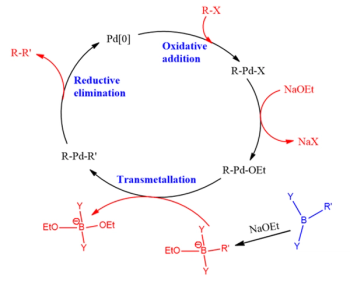
Mobile Affinity Selection Chromatography Advances Quality Assessment of Monoclonal Antibodies
Researchers explore the benefits of a mobile affinity selection chromatography (MASC) luminon assay method to assess the quality of therapeutic monoclonal antibodies.
A group of researchers, led by Fred E. Regnier of Purdue University, recently a published a manuscript in Analytical Chemistry exploring the benefits of a mobile affinity selection chromatography (MASC) luminon assay method to assess the quality of therapeutic monoclonal antibodies (mAbs) (1). The researchers concluded that this MASC approach overcomes limitations associated with the traditional two-step quality assessment process and offers numerous important advantages.
Therapeutic monoclonal antibodies (mAbs) are subject to stringent quality verification by regulatory agencies. The traditional two-step approach involves protein A affinity chromatography for host-cell proteome and metabolome removal, followed by liquid chromatography–mass spectrometry (LC–MS) for mAb quality assessment. However, this process faces challenges including a time-consuming sample preparation step and a lack of higher-order structure analyses. The published research explored the potential of using a mobile affinity selection chromatography (MASC) luminon assay—which integrates sample preparation and molecular-recognition-based analyses in a single isocratically eluted column —to assess mAbs.
The MASC luminon assay allowed the rapid assessment of mAb titer and aggregate content within 10 min, eliminating the need for the protein A step with the potential to improve quality evaluation at all stages of mAb development and manufacturing process, according to the researchers.
The MASC luminon assay was found to be a swift and accurate method for identifying and quantifying two critical mAb quality features: titer and percent aggregate content. In comparison to the traditional online two dimensional liquid chromatography (2D-LC) protein A-SEC assays, MASC exhibits similar speed but offers improved accuracy and reproducibility. The elimination of the protein A purification step addresses various sources of variability, ensuring consistent results. This novel MASC luminon assay used in process analytical technology (PAT) enabled cellular extract preparation, analyte-specific fluorescent coding, and proteoform separation in a single isocratically eluted column.
A significant advantage of the MASC luminon assay is its applicability to diverse therapeutic mAb subclasses without the need for preliminary removal of host-cell impurities. By targeting the fragment crytallizable (Fc) region with fluorescent coding, the assay facilitates rapid quantification of mAb titer and aggregate content, crucial in assessing toxicity and immunogenicity risks. The assay's ability to establish a chronological pattern of monomer to aggregate ratios provides early warnings of mAb quality drift to aid fast validation and remediation efforts, according to the researchers.
Although the MASC luminon assay does not provide structural information beyond the Fc region, it does evaluate the mAb function and higher-order structure. This means it is useful as a rapid screening tool for identifying protein quality issues, which can lead the way for subsequent in-depth analysis using liquid chromatography tandem mass spectrometry (LC–MS) methods. The simplicity and speed of this MASC luminon assay enabled data-dependent decision-making—which is important in therapeutic mAb quality management during process development and manufacturing. Additionally, the research highlighted that compatibility with multiple IgG subclasses and allotypes of human or humanized antibodies positions make this MASC approach useful as a versatile and powerful addition to process analytical technology (PAT).
The researchers concluded that the MASC luminon assay's speed and versatility make it a useful tool for mAb quality at all stages of the discovery, process R&D, and manufacturing of mAbs.
This article was written with the help of artificial intelligence and has been edited to ensure accuracy and clarity. You can read more about our
Reference
Narsimhan M.L; Kim J.; Morris N.A.; Bower M.A; Gunawardena H.P.; Bowen E.; Regnier F.E. Mobile Affinity Selection Chromatography Analysis of Therapeutic Monoclonal Antibodies. Anal. Chem. 2023. 95(44) 16115–16122. DOI:
Newsletter
Join the global community of analytical scientists who trust LCGC for insights on the latest techniques, trends, and expert solutions in chromatography.




